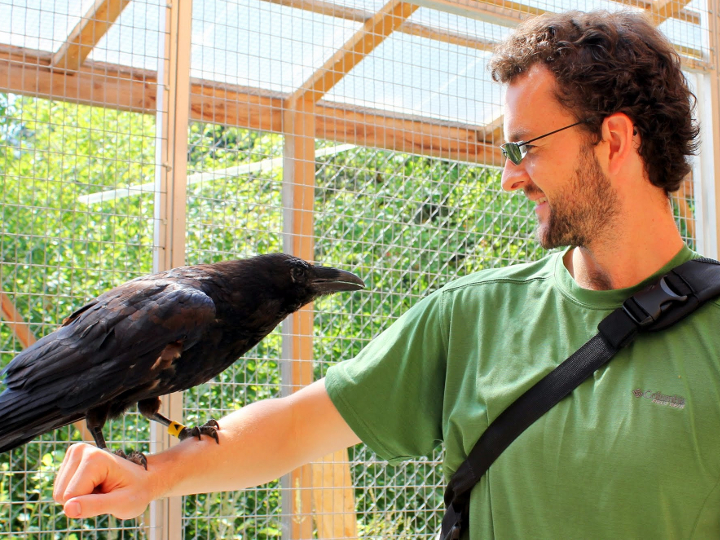Do Any Animals Have The Ability To Reason
Do Animals Think Rationally?
Researcher Suggests Rational Decision-Making Doesn't Require Language

Cameron Buckner, assistant professor of philosophy at UH, says empirical prove suggests a multifariousness of animal species are able to brand rational decisions, despite the lack of a human being-like language.
Previous enquiry has shown that animals can remember specific events, apply tools and solve problems. But exactly what that ways – whether they are making rational decisions or merely reacting to their environment through mindless reflex – remains a matter of scientific dispute.
Cameron Buckner, assistant professor of philosophy at the Academy of Houston, argues in an article published in Philosophy and Phenomenological Research that a broad range of animal species exhibit and so-chosen "executive command" when it comes to making decisions, consciously considering their goals and ways to satisfy those goals earlier interim.
He acknowledges that language is required for some sophisticated forms of metacognition, or thinking about thinking. But bolstered past a review of previously published inquiry, Buckner concludes that a wide diversity of animals – elephants, chimpanzees, ravens and lions, amid others – engage in rational determination-making.
"These data suggest that not but do some animals have a subjective take on the suitability of the selection they are evaluating for their goal, they possess a subjective, internal signal regarding their confidence in this take that can be deployed to select amongst dissimilar options," he wrote.
The question has been debated since the days of the aboriginal philosophers, as people considered what it means to be human. One way to accost that, Buckner said, is to determine exactly what sets humans autonomously from other animals.
Language remains a key differentiator, and Buckner notes that serious attempts in the 1970s and '80s to teach animals human language – educational activity chimpanzees to use sign language, for instance – constitute that although they were able to express unproblematic ideas, they did not appoint in complex thought and language structures.
Aboriginal philosophers relied upon anecdotal evidence to study the event, only today's researchers conduct sophisticated controlled experiments. Buckner, working with Thomas Bugnyar and Stephan A. Reber, cerebral biologists at the Academy of Vienna, last year published the results of a written report that determined ravens share at least some of the human ability to think abstractly nigh other minds, adapting their beliefs by attributing their own perceptions to others.
In his latest newspaper, Buckner offers several examples to back up his argument:
- Matriarchal elephants in Kenya'due south Amboseli National Park were able to make up one's mind the threat level of human being intruders past differentiating ethnicity, gender and age, suggesting an agreement that adult Maasai tribesmen sometimes kill elephants in competition for grazing or in retaliation for attacks against humans, while Kamba tribesmen and women and children from both tribes don't pose a threat.
- Giraffes are not more often than not considered prey by lions in Africa, due to the long-necked animals' ability to evangelize skull-crushing kicks. Lions in South Africa's Selous Game Reserve, nonetheless, are reported to have learned that giraffes found in a sandy river bed can become stuck and even trip, making them suitable prey.
His goal, Buckner said, was to compile the empirical research, "to run across that we've accumulated enough evidence to say that animals actually are rational in a distinctive way."
Source: https://www.uh.edu/news-events/stories/2017/november/11012017Buckner-Animal-Cognition.php#:~:text=But%20bolstered%20by%20a%20review,engage%20in%20rational%20decision%2Dmaking.
Posted by: warfieldpasters.blogspot.com

0 Response to "Do Any Animals Have The Ability To Reason"
Post a Comment